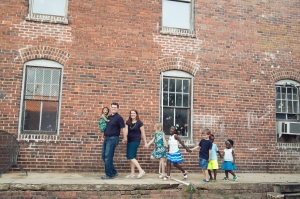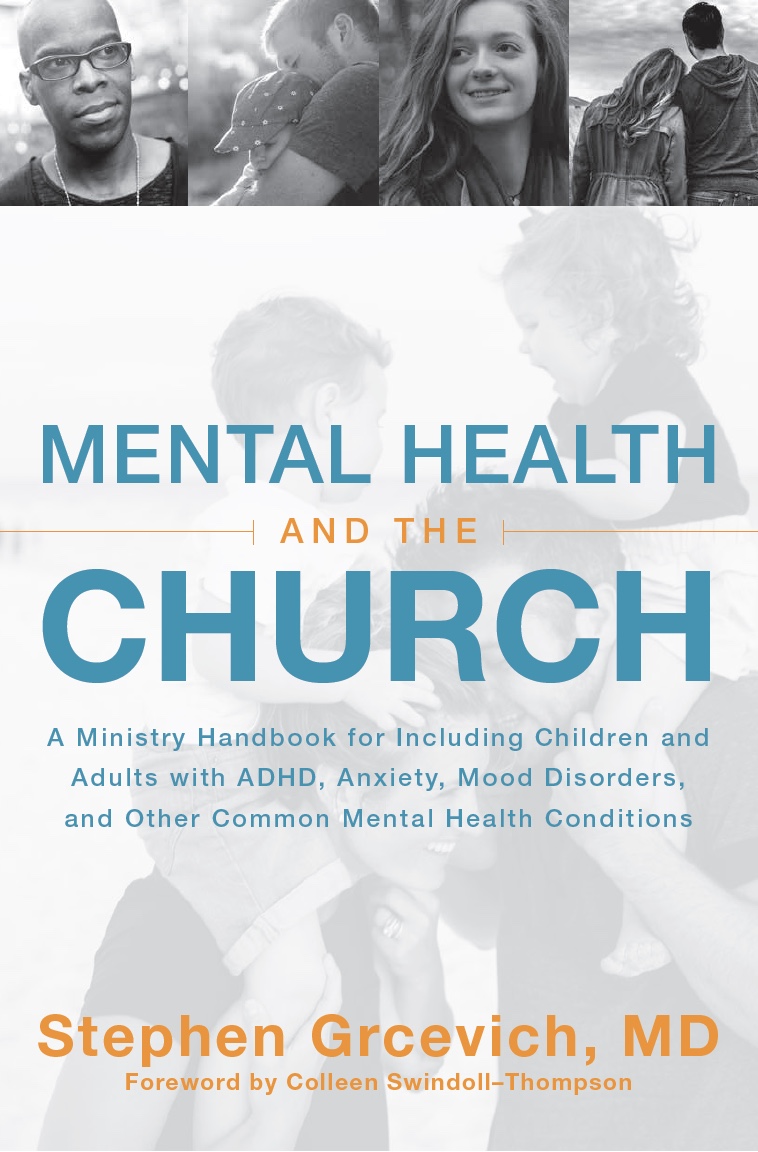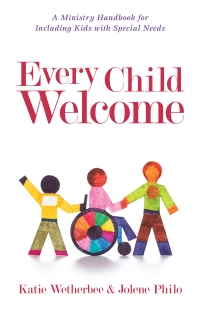 As I’ve been speaking at more conferences across the nation in the past year, I’ve met many of you. I love connecting face to face, but I know many of you will never get a chance to interact with our team face to face. That’s one reason we’re launching virtual special needs ministry roundtables.
As I’ve been speaking at more conferences across the nation in the past year, I’ve met many of you. I love connecting face to face, but I know many of you will never get a chance to interact with our team face to face. That’s one reason we’re launching virtual special needs ministry roundtables.
That’s also why I’m sharing the lists of stats I used in presentations. First, I offered figures about the prevalence of disabilities and mental illness in the US. Then I followed up with a post listing research related to special needs in the church. And now it’s time to look at the intersection between adoption and disability.
In recent years, more churches are launching adoption and foster care ministries, and pastors are exhorting their members to be serious in their care for vulnerable children and families. I’m completely in favor of that! But I want us all to be wise to this reality, presented by the U.S. Census Bureau: “it appears that adoptive families are more likely than others to face the challenge of dealing with disabilities among their children.”
One important note about language: For the purposes of clarity, in this post I will use phrases like “adopted children” below. While the wording makes sense in this specific context, I am not modeling the normal, everyday language you should use in talking about families like mine. I just refer to my kids as my kids, not my biological children and then my adopted ones. Sometimes it is helpful to compare the population of children who were adopted or are fostered to the demographic of children growing up in their family of origin, particularly in summarizing current research, so that’s why I’m making the distinctions below. In the church, we live in the fine balance of welcoming all families without capitalizing on any differences while also being sensitive to some challenging realities faced by foster and adoptive families due to disability, grief, and trauma. In other words, my family wants to be accepted like any other family would be, but showing loving care to us involves being aware of our unique dynamics without defining us by them.
Based on US Census data from 2008[i] [ii],
- 3% of children in US households joined their families by adoption.
- 6% of children in adoptive placements in the U.S. have a disability, compared to 4.6% of other children.
- 3% of children in adoptive placements in the U.S. have multiple disabilities (vs. 1.2% for others).
- While these figures are still relatively small, they tell us that adopted children are 2-2.5 times more likely to have a disability or multiple disabilities than other kids.
According to the 2007 National Survey of Adoptive Parents,[iii]
 39% of adopted children have special health care needs and 26% have moderate to severe health difficulties, as compared to 19% and 10% in the general population.
39% of adopted children have special health care needs and 26% have moderate to severe health difficulties, as compared to 19% and 10% in the general population.
- 9% of adopted children ages 2 and older have been ever diagnosed with depression, 26% with ADHD, and 15% with a behavioral/conduct disorder, compared to 4%, 10%, and 4% in the US population.
- 12% of adopted children have ever been diagnosed with an attachment disorder.
- Rates of mental health or attachment disorders among children adopted from foster care are higher than other groups of adoptees: ADHD 38%, behavioral/conduct disorders 25%, and attachment disorders 21%.
- 11% of adoptive parents reported high levels of parental aggravation (based on parents’ ratings of difficulty caring for their child and feeling anger toward their child) compared to 6% of other parents, with the rates being the highest for parents who adopted from foster care (16%).
- 3% of all adoptive parents, 5% of adoptive parents of children with special health care needs[iv], and 6% of adoptive parents from foster care state that they “probably would not” or “definitely would not” make the decision to adopt their child again. These numbers aren’t high, but they’re higher than we’re usually willing to admit in the church.
- More than 1/3 of adopted children have utilized at least one rehabilitative service, such as family or crisis counseling, inpatient or outpatient mental health care, or drug or alcohol treatment.
Related to unexpected special needs & early childhood trauma,
 The US State Department says this about special needs adoption: “Many children who become available for intercountry adoption have special needs or identified medical conditions. Those needs and medical conditions can be challenging for a family that is not prepared. We urge you to carefully consider a child’s medical condition and special needs before accepting a referral.”[v]
The US State Department says this about special needs adoption: “Many children who become available for intercountry adoption have special needs or identified medical conditions. Those needs and medical conditions can be challenging for a family that is not prepared. We urge you to carefully consider a child’s medical condition and special needs before accepting a referral.”[v]
Note: The rest of this list details research concerning childhood trauma. I think it’s important to note that while children in adoptive and foster placements are most likely to have experienced trauma than other kids, adverse childhood experiences (ACEs) happen to those from a variety of backgrounds.
- One recent study showed that 61% of U.S. teens had been exposed to at least one potentially traumatic experience (PTE). 31% had experienced multiple PTEs, and 18.6% reported experiencing three or more PTEs.[vi]
- According to the study cited above, for adults who experienced 4 or more Adverse Childhood Experiences (ACEs), researchers documented increased risks for panic reactions, depression, anxiety, hallucinations, sleep disturbances, severe obesity, substance abuse of all kinds, early sexual intercourse, promiscuity, sexual dissatisfaction, memory impairment, and anger management difficulties.
- Toxic stress – that is, “strong, frequent, or prolonged activation of the body’s stress management system” from adverse events “that are chronic, uncontrollable, and/or experienced without children having access to support from caring adults” – can adversely affect brain development, chemical balances, and physiological responses to stress long after that stress has ended.
- “In the extreme, such as in cases of severe, chronic abuse, especially during early, sensitive periods of brain development, the regions of the brain involved in fear, anxiety, and impulsive responses may overproduce neural connections while those regions dedicated to reasoning, planning, and behavioral control may produce fewer neural connections.” [vii]
- Early childhood exposure to trauma can result in the following outcomes: “self-regulatory, attachment, anxiety, and affective disorders in infancy and childhood; addictions, aggression, social helplessness and eating disorders; dissociative, somatoform, cardiovascular, metabolic, and immunological disorders; sexual disorders in adolescence and adulthood; and revictimization,” the latter often the result of difficulty identifying or responding to danger cues.[viii]
- In The Connected Child (a book I highly recommend), Dr. Purvis and her colleagues share that “disturbing behaviors – tantrums, hiding, hyperactivity, or aggressiveness – are often triggered by a child’s deep, primal fear. Youngsters… can be physically safe in their new adoptive home, but past traumas encoded within their brains are easily reactivated.”
- GOOD NEWS: Some children are not as affected by trauma as others, and neuroplasticity – the brain’s ability to regenerate or create new pathways – may allow for some healing of that damage with positive experiences, including treatment, good nutrition, familial stability, and love.[ix]
The biggest takeaway for all three of the posts in this series?
Church, we have a great opportunity to show love! The need is great. Kids are hurting. Adults are too. Families are struggling. The first step in being able to help is understanding the need.
Jesus met people where they were, and so can we.
References:
[i] Americans with Disabilities. U.S. Census Bureau, 2010: http://www.census.gov/prod/2012pubs/p70-131.pdf
[ii] Adopted Children and Stepchildren: 2010. U.S. Census Bureau. https://www.census.gov/prod/2014pubs/p20-572.pdf
[iii] Adoption USA: A Chartbook Based On The 2007 National Survey of Adoptive Parents. US Department of Health and Human Services. Retrieved from http://aspe.hhs.gov/hsp/09/NSAP/chartbook/doc/chartbook.pdf
[iv] McKlindon, K. et al. (February 2011). Adopted Children with Special Health Care Needs. Adoption Advocate, a publication of the National Council For Adoption. No. 32. Retrieved from https://www.adoptioncouncil.org/images/stories/documents/ncfa_adoption_advocate_no32.pdf
[v]Intercountry Adoption, Bureau of Consular Affairs, US Department of State. Health Considerations. http://adoption.state.gov/adoption_process/how_to_adopt/health.php
[vi] McLaughlin, K.A. (2013). Trauma Exposure and Post-Traumatic Stress Disorder in a National Sample of Adolescents. Journal of the American Academy of Child & Adolescent Psychiatry. 52(8). 815-830.
[vii] National Scientific Council on the Developing Child. (2005/2014). Excessive Stress Disrupts the Architecture of the Developing Brain: Working Paper 3. Updated Edition. Retrieved from http://www.developingchild.harvard.edu
[viii] National Child Traumatic Stress Network. http://www.nctsnet.org/nctsn_assets/pdfs/edu_materials/ComplexTrauma_All.pdf
[ix] National Scientific Council on the Developing Child. (2005/2014). Excessive Stress Disrupts the Architecture of the Developing Brain: Working Paper 3. Updated Edition. Retrieved from http://www.developingchild.harvard.edu
In addition to serving as a Key Ministry Church Consultant, Shannon Dingle is a co-founder of the Access Ministry at Providence Baptist Church in Raleigh, NC.
***********************************************************************************************************
 Check out Shannon Dingle’s blog series on adoption, disability and the church. In the series, Shannon looked at the four different kinds of special needs in adoptive and foster families and shared five ways churches can love their adoptive and foster families. Shannon’s series is a must-read for any church considering adoption or foster care initiatives. Shannon’s series is available here.
Check out Shannon Dingle’s blog series on adoption, disability and the church. In the series, Shannon looked at the four different kinds of special needs in adoptive and foster families and shared five ways churches can love their adoptive and foster families. Shannon’s series is a must-read for any church considering adoption or foster care initiatives. Shannon’s series is available here.





Thanks so much for the stats! I spend my days caring for children with special needs. It’s very frustrating to see how the “hidden disabilities” are treated in the church. Doubly so when our own internationally adopted daughter with severe anxiety has been kicked out of the children’s ministry. She has sensory issues but they interpret it as bad behavior and poor parenting. I believe it was made worse by the fact that the pastor has also internationally adopted and his children are perceived as “normal”. We’ve been in evangelical churches all our lives, my husband’s father is a pastor. We are currently churchless because of these issues and feeling hesitant to keep trying to find a church where are daughter is accepted and understood. Thanks for your ministry-I hope change is coming in time.
LikeLike
I needed this so badly I need to look up all these references to show the school it’s not behavioral.
LikeLike
Where do I find more in toxic stress
LikeLike